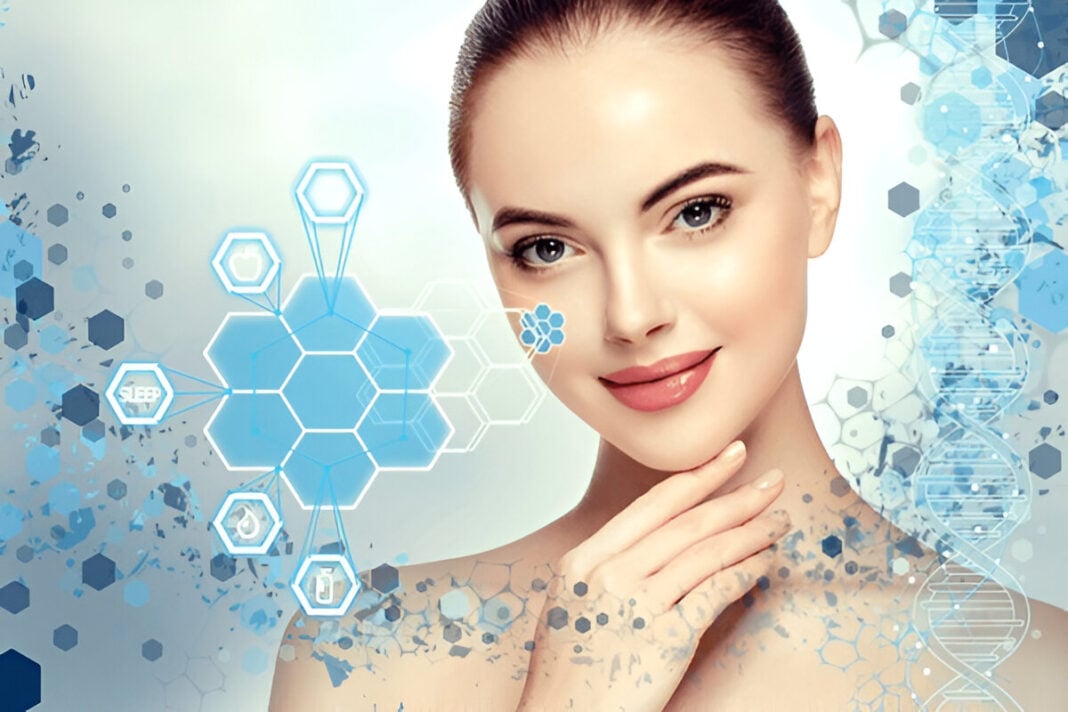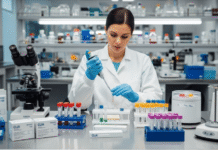Of all forms of proteins, collagen is the most abundant protein in the human body and plays a great role in forming the structure, firmness, and elasticity of the skin. Decreased production of collagen with age leads to all visible signs of skin aging, such as wrinkles and sagging skin. Knowledge of the science behind collagen and techniques hearkening back to natural or medical options to promote levels would help to keep the skin’s elasticity and a youthful look.
Understanding Collagen and Its Role in Skin Health
Collagen is known as the scaffold that guarantees healthy skin and the scaffold that keeps such firmness and elasticity in the skin. Type I collagen, produced by fibroblasts in the dermis, comprises 80%-90% of skin collagen (Shuster et al., 1975). This type of structural protein is responsible for dermal resilience and extensibility.
Natural Methods to Enhance Collagen Production
- Dietary Choices
A healthy diet containing specific nutrients may help support the body in producing its collagen naturally:
Protein-Rich Foods: These include all meat and fish, as well as beans, eggs, and dairy products (Cleveland Clinic, 2023). Protein is very important because it needs to be consumed in sufficient amounts in order to provide necessary amino acids, especially for collagen production.
Vitamin C-Rich Foods: It is essential in collagen production; citrus fruits, red and green peppers, tomatoes, and dark green leafy vegetables can help to keep skin health (Pullar et al., 2017).
Bone Broth: This provides direct sources and contributes to the possible build-up of collagen amounts within the body (Cleveland Clinic, 2023).
- Lifestyle Modifications
Sun Protection: Ultraviolet (UV) radiation increases the rate of collagen degeneration. Application of sunscreen regularly helps to keep the skin protected from the damage caused by UV (D’Orazio et al., 2013).
Smoking Cessation: Smoking was proved to be a causative agent of destruction of collagen and elastin fibers resulting in premature aging of skin. Avoiding tobacco products protects the skin from possible effects of elastosis (Krutmann et al., 2017).
Hydration: Hydration ensures good skin health through maintenance of balanced water and elasticity. Adequate water intake helps overall skin health (Palma et al., 2015).
Medical Interventions to Boost Collagen Levels
- Collagen Supplements
Collagen taken orally has become pretty popular because of its skin benefits. Research shows that hydrolyzed collagen supplements have effects like skin hydration, elasticity, and reduced wrinkle depth. A systematic review has shown that collagen supplements are efficient in improving skin elasticity and moisture (Choi et al. 2019). Proksch reported in 2014 that skin moisture and elasticity improved tremendously after 12 weeks of collagen peptide intake (Proksch et al., 2014).
- Topical Treatments
Certain topical agents can stimulate collagen production:
Retinoids: Retinoids are vitamin A derivatives that stimulate collagen synthesis and eliminate signs of skin aging (Kafi et al., 2007).
Vitamin C Serums: Applied topically, vitamin C can enhance collagen production and protect against photodamage (Pullar et al., 2017).
- Advanced Dermatological Procedures
Medical treatments can also stimulate collagen production:
Laser Therapy: Some laser inputs can provoke collagen remodeling, thus enhancing skin texture and elasticity (Katsambas & Katoulis, 2010).
Microneedling: Microneedling involves tiny needles producing micro-injuries, activating the wound healing cascade, and stimulating collagen production (Aust et al., 2011).
The process of preserving skin elasticity requires more than just adopting a healthy lifestyle; it also offers a role for medical treatment. A diet rich in protein and vitamins, with additional support from sun protection and quitting smoking, helps collagen naturally form in the body. If more options are desired, then collagen supplements, and cosmetic treatments may yield favorable results. Consulting a physician will provide the best insight into the right course of action for one’s individual skin health needs.
References
- Aust, M. C., Reimers, K., Gohritz, A., Jahn, S., Stahl, F., & Vogt, P. M. (2011). Percutaneous collagen induction: Minimally invasive skin rejuvenation without risk of hyperpigmentation—Fact or fiction? Plastic and Reconstructive Surgery, 127(4), 1553-1561. https://doi.org/10.1097/PRS.0b013e3181f98a33
- Choi, F. D., Bragazzi, N. L., & Maibach, H. I. (2019). Oral collagen supplementation: A systematic review of dermatological applications. Journal of Drugs in Dermatology, 18(1), 9-16.
- Cleveland Clinic. (2023). Collagen: What it is, types, function & benefits. Retrieved March 26, 2025, from https://my.clevelandclinic.org/health/articles/23089-collagen
- D’Orazio, J., Jarrett, S., Amaro-Ortiz, A., & Scott, T. (2013). UV radiation and the skin. International Journal of Molecular Sciences, 14(6), 12222-12248. https://doi.org/10.3390/ijms140612222
- Kafi, R., Kwak, H. S., Schumacher, W. E., Cho, S., Hanft, V. N., Hamilton, T. A., & Voorhees, J. J. (2007). Improvement of naturally aged skin with vitamin A (retinol). Archives of Dermatology, 143(5), 606-612.
- Katsambas, A., & Katoulis, A. (2010). Laser therapy for skin rejuvenation: What is the best choice? Clinics in Dermatology, 28(5), 484-490. https://doi.org/10.1016/j.clindermatol.2010.03.003
- Krutmann, J., Bouloc, A., Sore, G., Bernard, B. A., & Passeron, T. (2017). The skin aging exposome. Journal of Dermatological Science, 85(3), 152-161. https://doi.org/10.1016/j.jdermsci.2016.09.015
- Palma, L., Picano, E., Paternostro, F., & Michelucci, A. (2015). Water and hydration in aging: Addressing the paradox. Aging Clinical and Experimental Research, 27(1), 1-8. https://doi.org/10.1007/s40520-014-0258-8
- Proksch, E., Schunck, M., Zague, V., Segger, D., Degwert, J., & Oesser, S. (2014). Oral supplementation of specific collagen peptides has beneficial effects on human skin physiology: A double-blind, placebo-controlled study. Skin Pharmacology and Physiology, 27(1), 47-55. https://doi.org/10.1159/000355523
- Pullar, J. M., Carr, A. C., & Vissers, M. C. M. (2017). The roles of vitamin C in skin health. Nutrients, 9(8), 866. https://doi.org/10.3390/nu9080866
- Shuster, S., Black, M. M., & McVitie, E. (1975). The influence of age and sex on skin thickness, skin collagen, and density. British Journal of Dermatology, 93(6), 639-643. https://doi.org/10.1111/j.1365-2133.1975.tb05113.x











